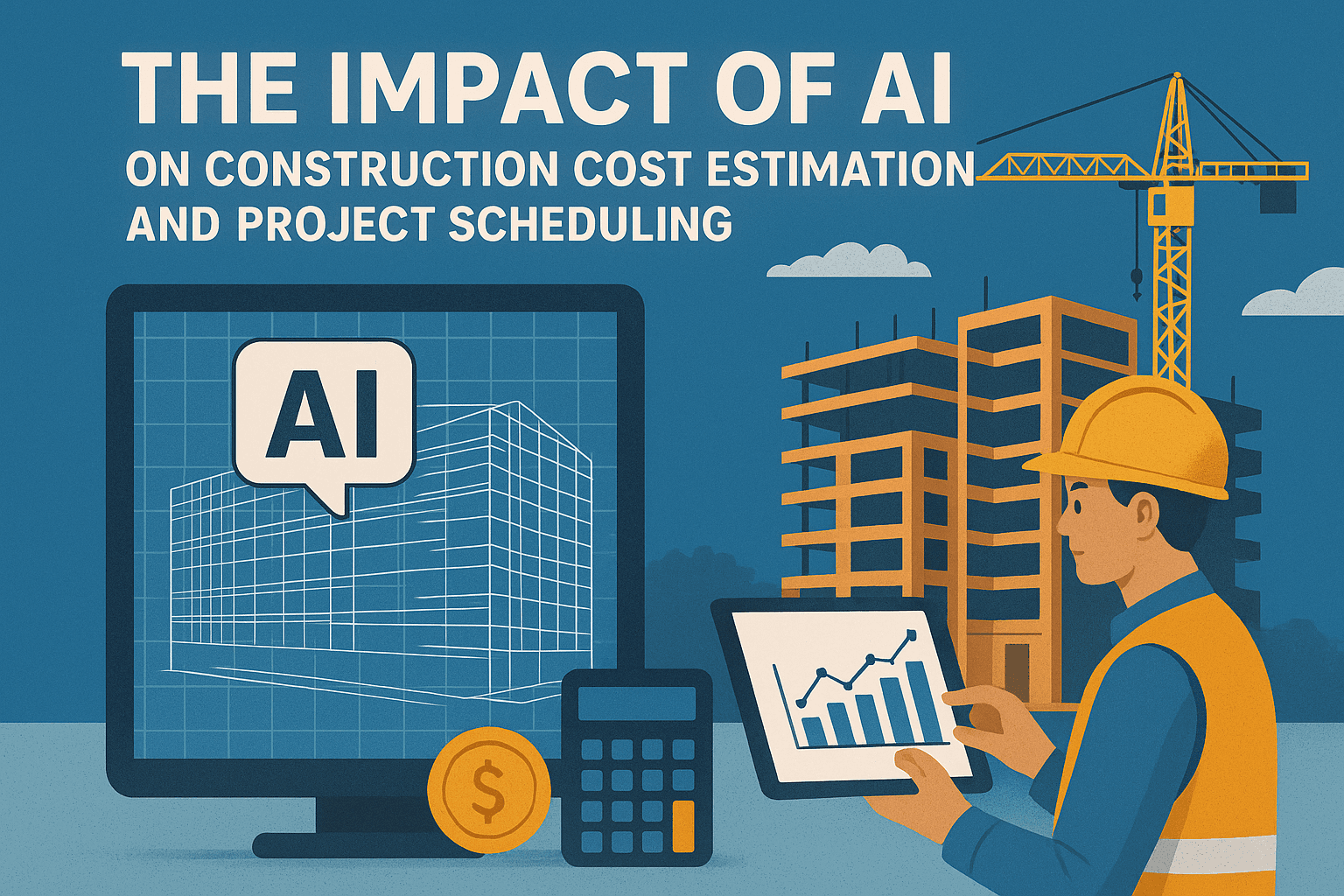Introduction
Artificial intelligence is fundamentally transforming two of the most critical aspects of construction management: cost estimation and project scheduling. These AI-driven innovations are delivering unprecedented accuracy, efficiency, and strategic insights that are reshaping how construction projects are planned and executed.
Revolutionizing Cost Estimation Accuracy
Traditional cost estimation relies heavily on historical data, manual calculations, and estimator experience—a process prone to human error and subjective judgment. AI algorithms change this paradigm by analyzing vast datasets encompassing thousands of completed projects, current material prices, labor market conditions, and regional cost variations. Machine learning models identify complex patterns and correlations that human estimators might miss, producing estimates with remarkable precision. AI-powered estimation tools can process architectural drawings and specifications automatically, extracting quantities and calculating costs in minutes rather than days. This rapid turnaround allows contractors to bid on more projects while maintaining accuracy. Moreover, AI systems continuously learn from actual project outcomes, refining their predictive capabilities and reducing the gap between estimated and actual costs over time.
Dynamic Pricing and Market Intelligence
AI platforms integrate real-time data feeds tracking commodity prices, supply chain disruptions, and labor availability. This dynamic pricing capability ensures estimates reflect current market conditions rather than outdated historical averages. Contractors gain competitive advantages by pricing projects based on actual market intelligence, avoiding both underpricing that erodes profits and overpricing that loses bids.
Intelligent Project Scheduling
Project scheduling has evolved from static Gantt charts to dynamic, AI-driven timelines that adapt to changing conditions. AI scheduling systems consider multiple variables simultaneously—weather forecasts, resource availability, supplier lead times, subcontractor schedules, and task dependencies—to create optimized construction sequences that minimize delays and maximize efficiency. Machine learning algorithms analyze historical project data to predict realistic task durations, accounting for factors like project complexity, team experience, and seasonal variations. This predictive capability helps project managers set achievable milestones and avoid the chronic optimism that plagues traditional scheduling methods.
Proactive Risk Management
AI excels at identifying potential scheduling conflicts and cost overruns before they materialize. Predictive analytics models assess risk factors across multiple dimensions, flagging issues like resource bottlenecks, weather-related delays, or supply chain vulnerabilities. This foresight enables proactive mitigation strategies rather than reactive crisis management. Natural language processing technology reviews contract documents and specifications, identifying clauses that might impact costs or timelines. This automated review reduces the risk of overlooking critical requirements that could trigger expensive changes or delays.
Real-Time Schedule Optimization
As projects progress, AI systems monitor actual performance against planned schedules, automatically adjusting timelines and resource allocations to maintain project momentum. If one trade falls behind, AI algorithms can reschedule dependent tasks, reallocate resources, or suggest acceleration strategies to minimize overall impact.
Enhanced Collaboration and Decision-Making
AI-powered dashboards provide stakeholders with real-time visibility into project costs and schedules, facilitating data-driven decision-making. When changes are proposed, AI systems instantly calculate cost and schedule implications, enabling informed choices about scope adjustments, value engineering, or acceleration options.
The Transformation Continues
The integration of AI into construction cost estimation and project scheduling represents more than incremental improvement it's a fundamental shift toward predictive, adaptive project management. As AI technology continues advancing, construction professionals who embrace these tools gain significant competitive advantages through improved accuracy, efficiency, and strategic insight. However, successful AI implementation requires balancing technological capability with human expertise. The most effective approach combines AI's analytical power with experienced professionals' judgment, creating a synergy that elevates construction project planning to new levels of precision and reliability. #AIInConstruction #SmartBuilding #FutureOfConstruction #ConTech #AIForContractors #DigitalConstruction #ConstructionInnovation #AIImpact #BuildSmarter #ConTechRevolution
